Crowns & Bridges in Northville, MI
Crowns and bridges restore damaged or missing teeth to improve strength, function, and appearance while supporting long-term oral stability.

What Are Dental Crowns & Bridges?
Dental crowns and bridges are restorative treatments used to repair damaged teeth or replace missing ones. A crown covers and protects a weakened tooth, restoring its shape, strength, and appearance. A bridge replaces one or more missing teeth by anchoring to neighboring teeth or restorations, helping maintain proper bite alignment.
At Gasior Family Dentistry in Northville, MI, crowns and bridges are carefully designed to blend naturally with your smile while supporting everyday function. Each restoration is customized for fit, comfort, and durability, ensuring results that feel natural and support long-term oral health.
Comprehensive Family Dental Care
Gasior Family Dental in Northville, MI provides personalized family dentistry focused on preventive care, comfort, and long-term oral health for patients of all ages.

Routine Cleanings
Professional routine cleanings that remove plaque and tartar buildup to support healthier teeth, gums, and long-term oral stability.

Fluoride Treatments
Fluoride treatments help strengthen tooth enamel, reduce the risk of cavities, and protect smiles from decay at every age.

Digital X-Rays
Advanced digital X-rays provide clear, detailed images to help detect dental concerns early and support accurate diagnosis and treatment planning.
Advanced Cosmetic Dental Care
Each cosmetic dental service at Gasior Family Dental in Northville, MI is carefully designed to enhance the appearance of your smile while maintaining a natural, balanced look without overcorrection.
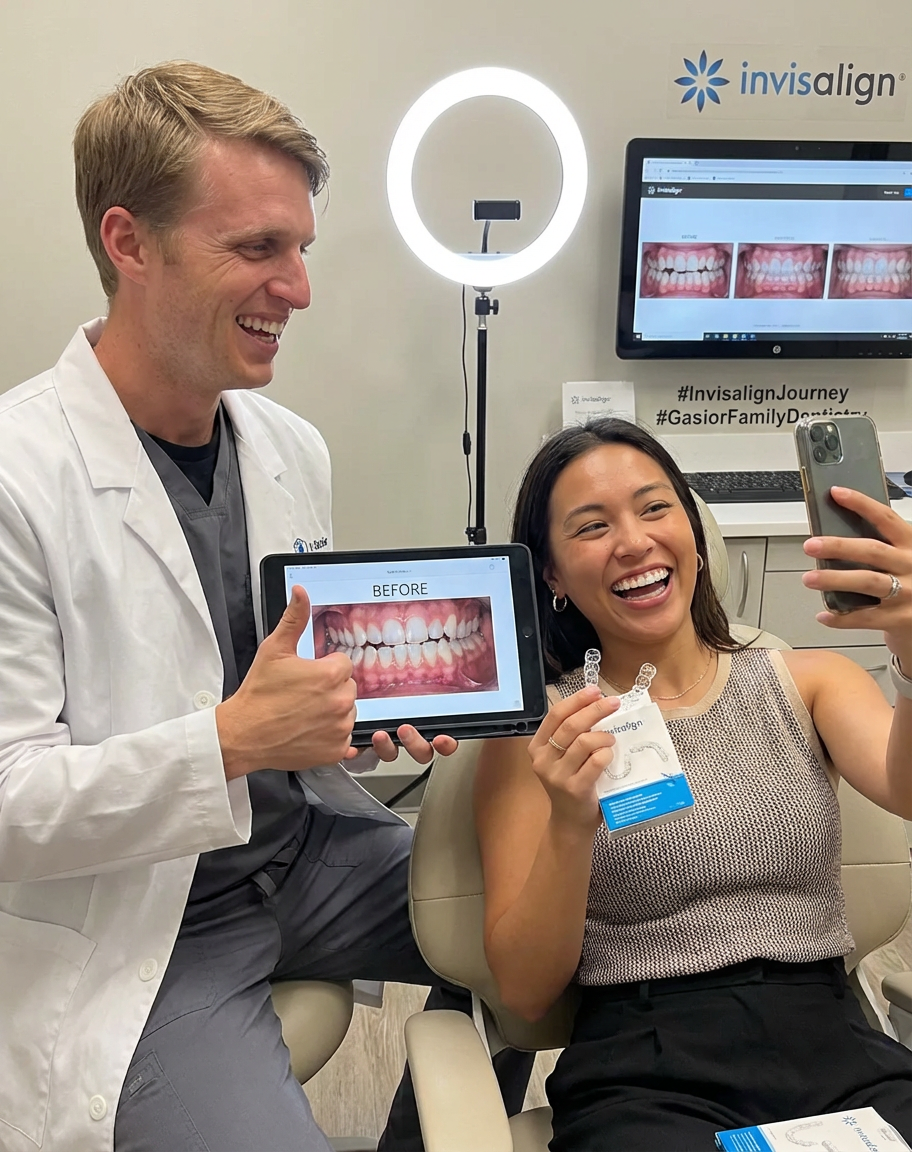
Invisalign
Invisalign clear aligners straighten teeth comfortably and discreetly, helping improve alignment, function, and smile confidence over time.

Smile Makeover
Thinking about a smile makeover in Northville, MI? Personalized cosmetic solutions at Gasior Family Dentistry. Call (248) 348-7997.

Veneers
Dental veneers enhance the appearance of teeth by improving color, shape, and symmetry, creating a brighter and more balanced smile.
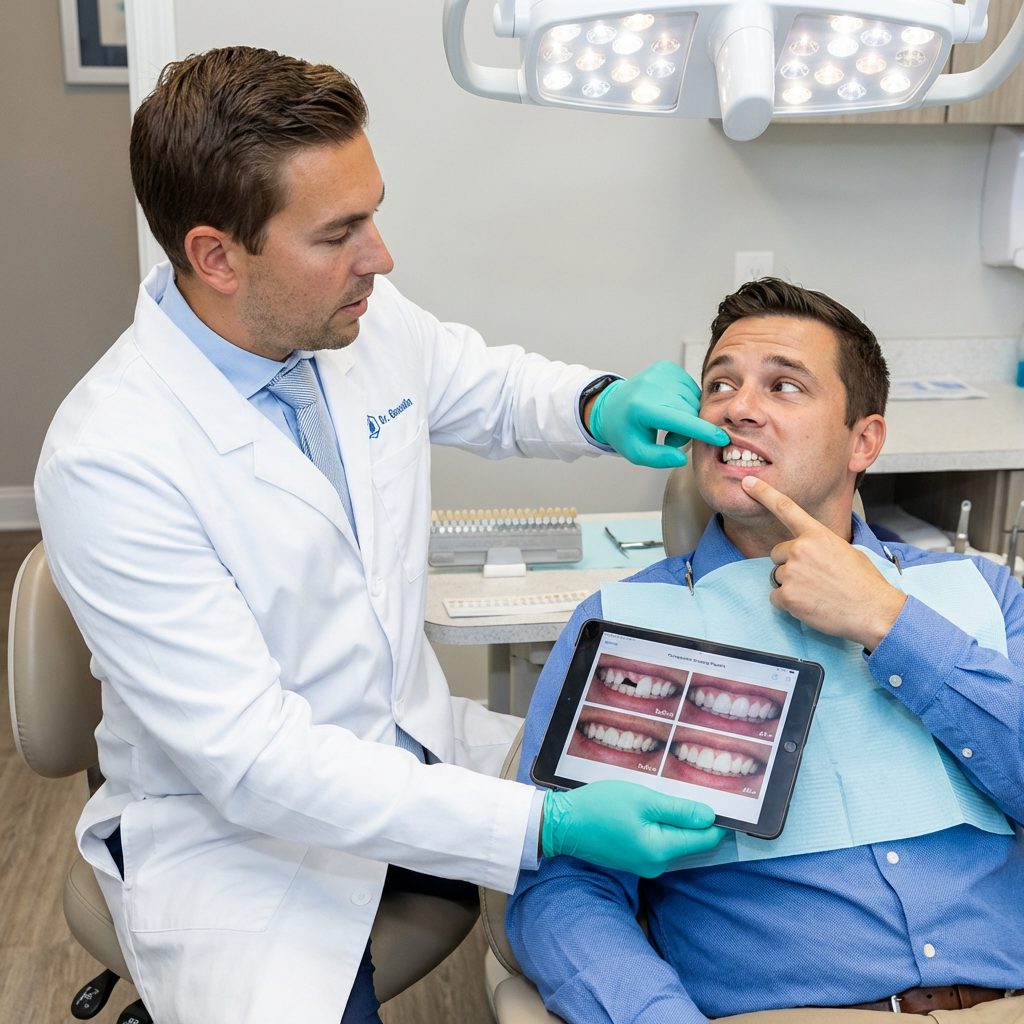
Anterior Bonding
Anterior bonding improves the appearance of front teeth by repairing chips, gaps, and uneven edges for a natural, confident smile.
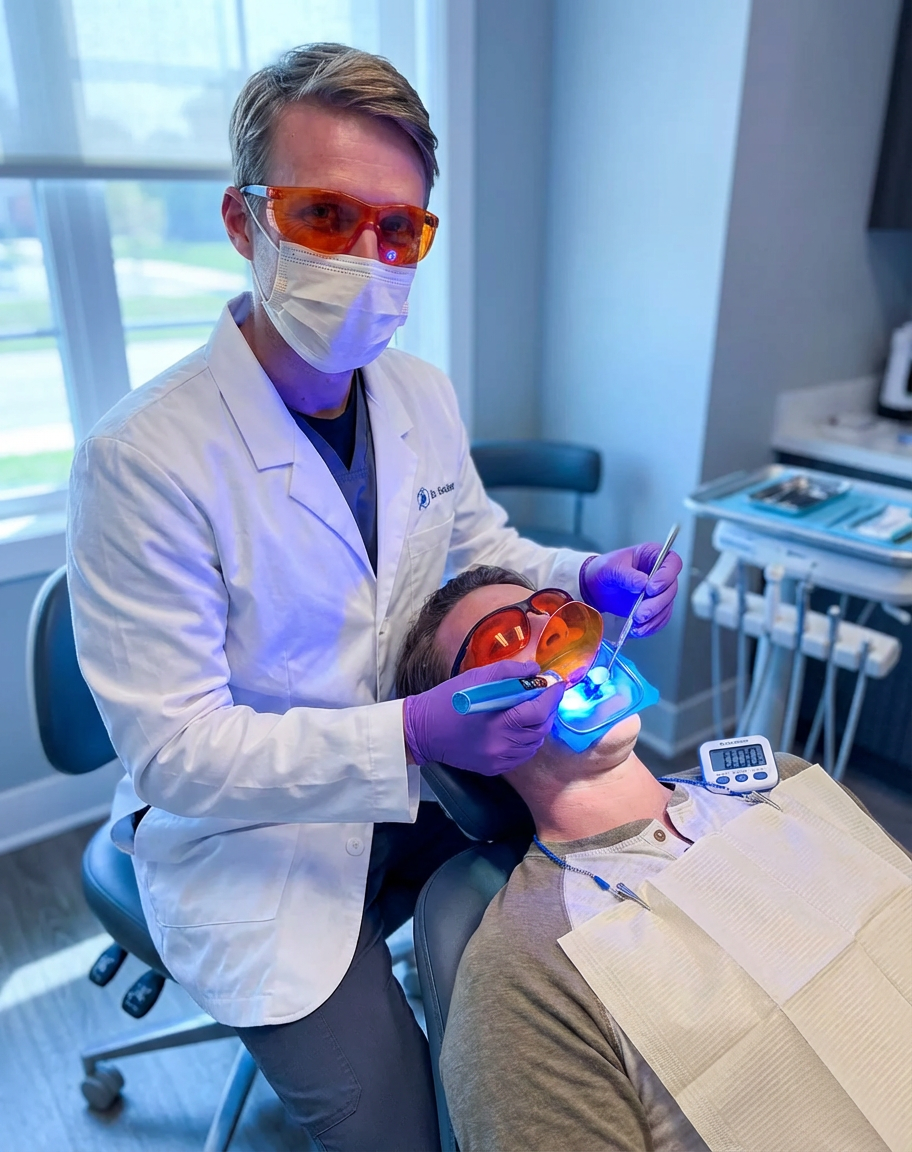
Tooth-Colored Fillings
Tooth-colored fillings repair cavities and minor damage while blending seamlessly with your natural teeth for a healthier, more natural-looking smile.
Advanced Preventive Dental Care
Protective treatments at Gasior Family Dental in Northville, MI focus on preventing dental issues before they start, helping preserve strong, healthy smiles over time.
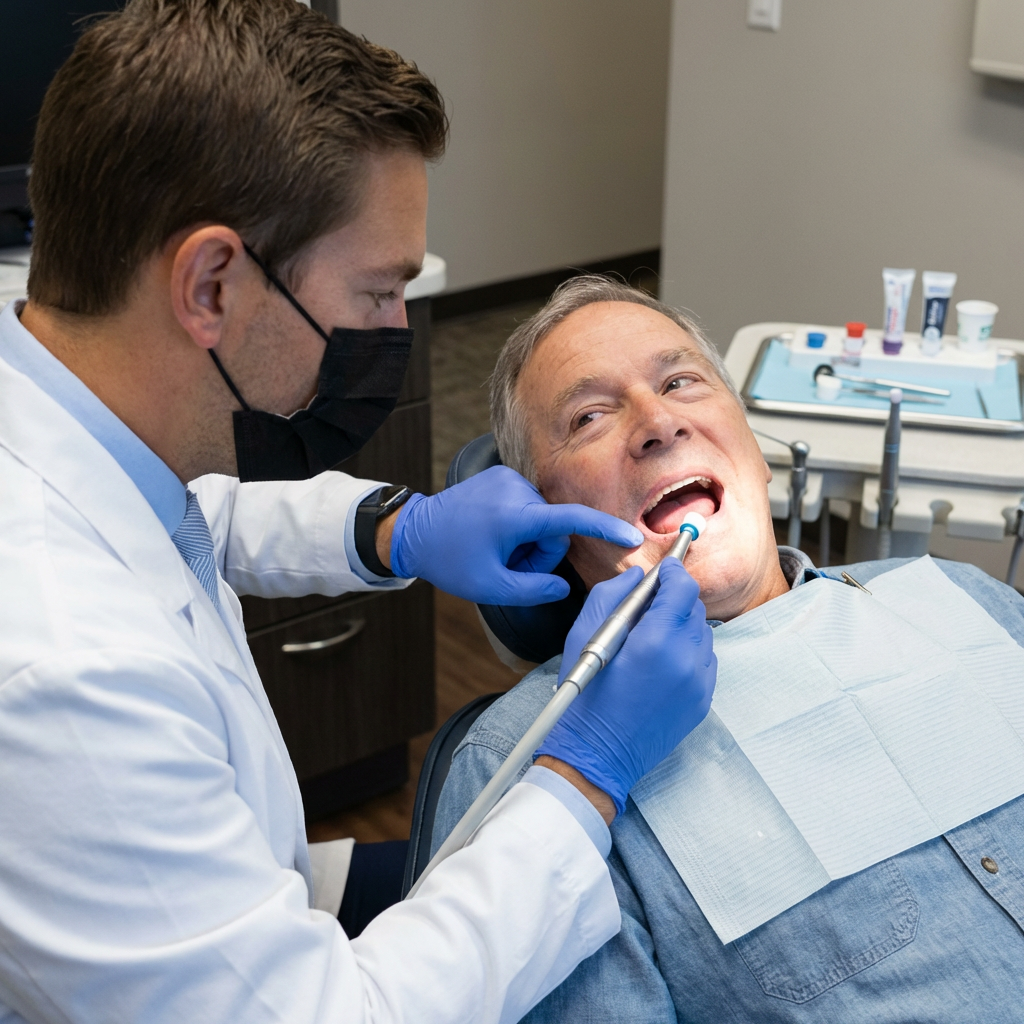
CEREC Crowns & Onlays
CEREC crowns and onlays restore damaged teeth with custom, natural-looking restorations designed, created, and placed in a single visit.

Crowns & Bridges
Crowns and bridges restore damaged or missing teeth to improve strength, function, and appearance while supporting long-term oral stability.
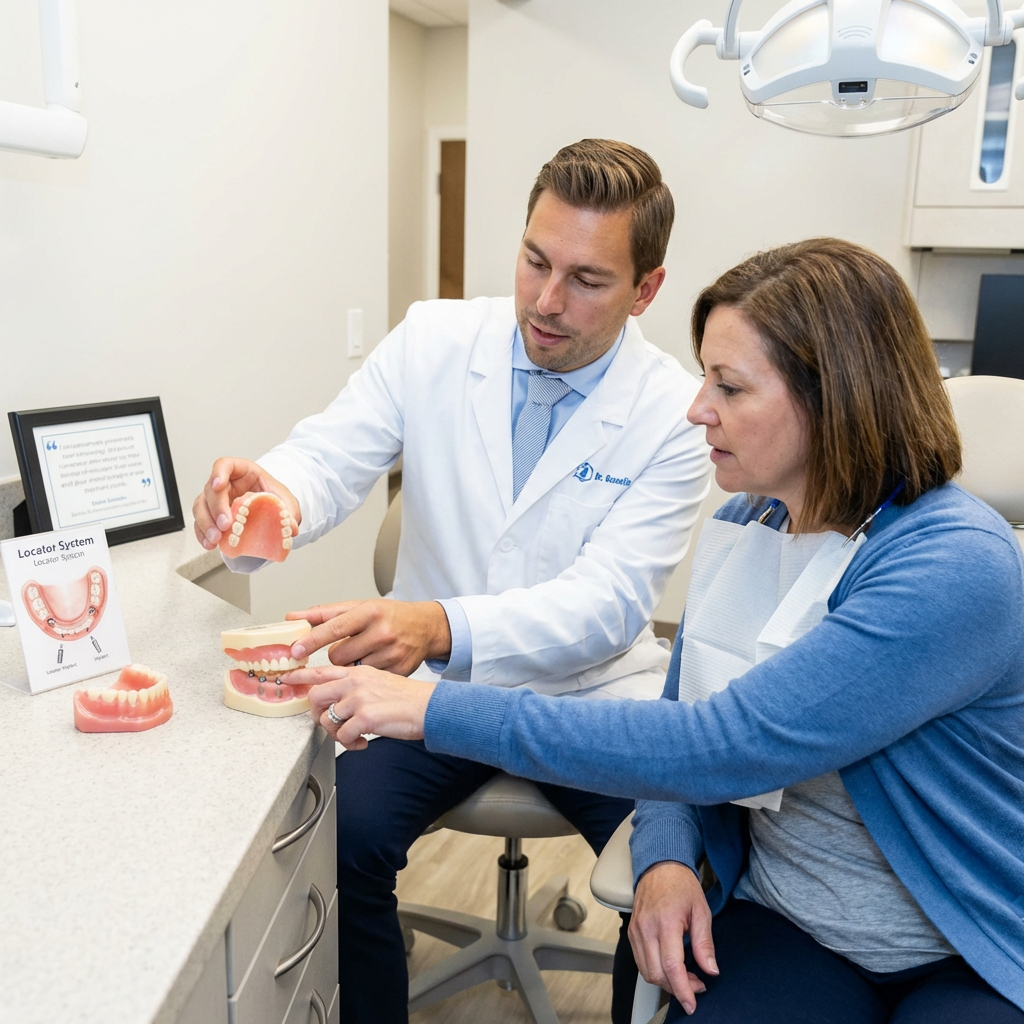
Dentures
Dentures replace missing teeth to restore your smile, improve chewing and speech, and support overall oral function and confidence.

Partial Dentures
Partial dentures replace missing teeth while preserving remaining natural teeth, helping restore function, appearance, and oral balance.

Dental Implants
Dental implants provide a secure, long-term solution for replacing missing teeth while supporting jawbone health, function, and natural appearance.
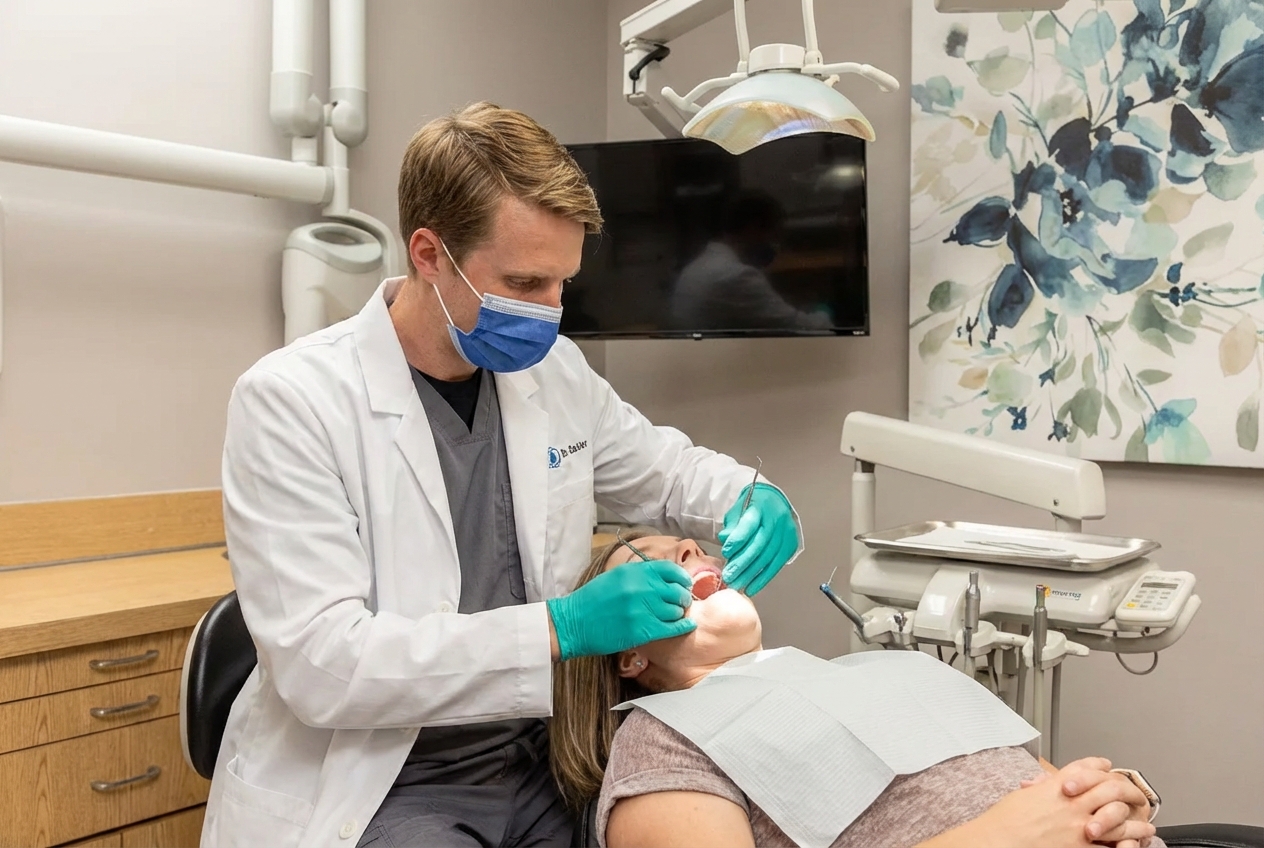
Periodontal Deep Cleaning
Periodontal deep cleaning helps remove bacteria, plaque, and tartar from beneath the gumline to control gum disease and support long-term oral stability.
Advanced Protective Dental Care
At Gasior Family Dental in Northville, MI, our protective dental treatments are thoughtfully designed to help prevent damage, reduce the risk of decay, and support long-term oral health for lasting, confident smiles.
Benefits of Crowns & Bridges
Discover why crowns and bridges are trusted solutions for restoring smiles affected by damage or tooth loss.
Restored Tooth Strength
Crowns protect weakened teeth and help prevent further damage.
Improved Bite Function
Bridges and crowns restore proper chewing and speaking ability.
Natural Smile Appearance
Custom restorations blend seamlessly with surrounding teeth.
Who Benefits from Crowns & Bridges?
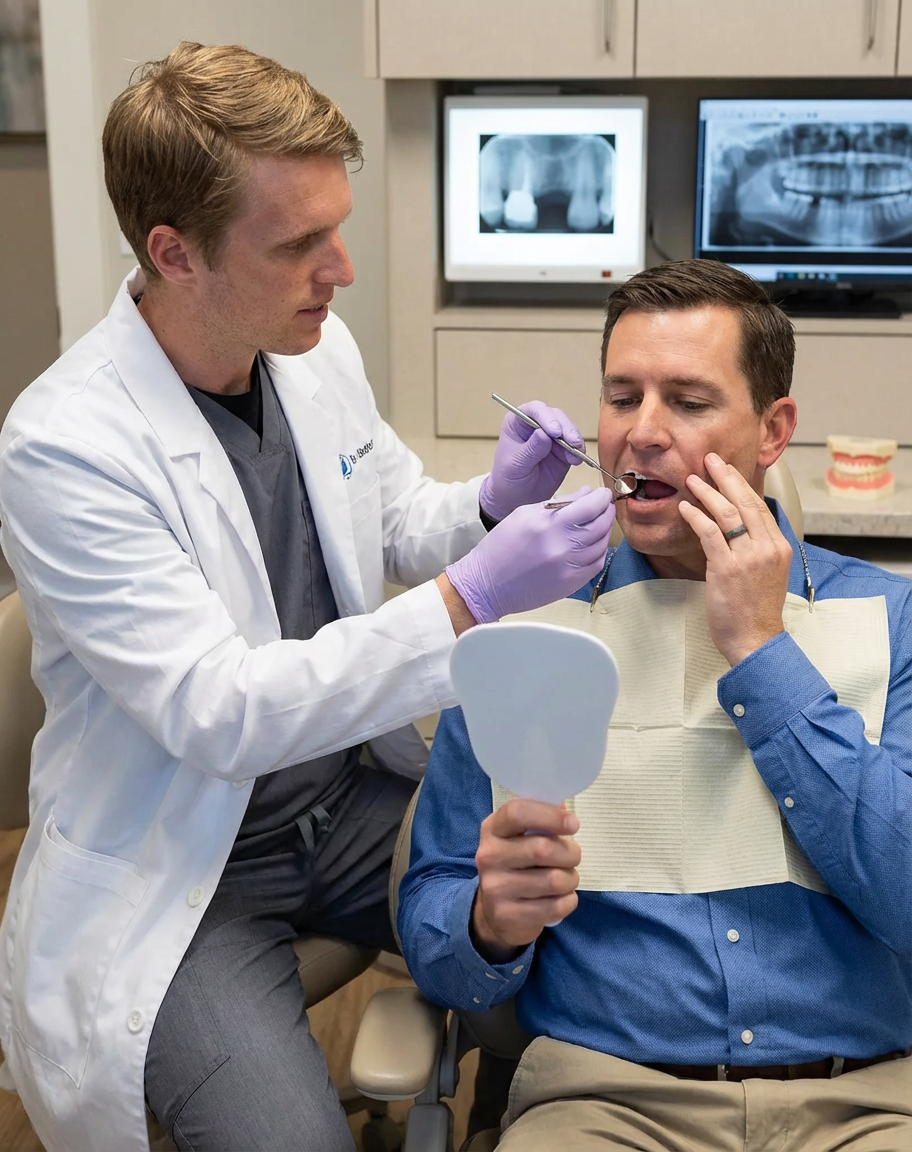
Crowns and bridges benefit patients with cracked, decayed, or weakened teeth as well as those missing one or more teeth. These restorations help prevent shifting, bite problems, and further oral health complications.
Patients seeking a durable, long-term solution for tooth repair or replacement often choose crowns and bridges. A comprehensive evaluation determines the best approach based on oral health, bite alignment, and individual needs.
Technology That Supports Crowns & Bridges
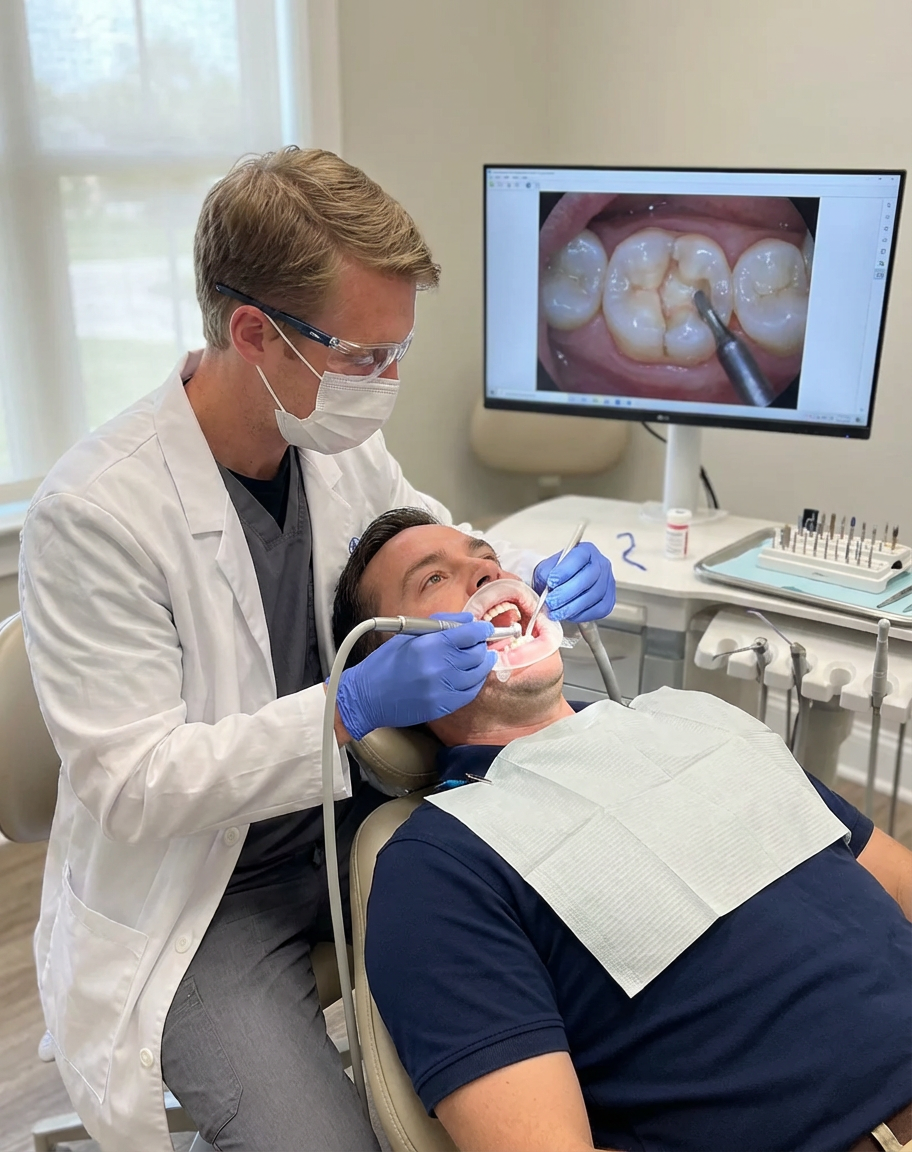
Modern restorative dentistry relies on digital impressions and precise planning to ensure accurate fit and comfort. Advanced materials provide strength and aesthetics comparable to natural teeth.
At Gasior Family Dentistry, technology supports detailed customization of crowns and bridges, helping deliver restorations that function well, look natural, and stand the test of time.
What to Expect During Your Visit
Your visit begins with an evaluation of the affected teeth. After preparation and impressions, your custom crown or bridge is created and placed for proper fit and comfort. Follow-up care ensures the restoration functions correctly and feels natural.
Before Your Appointment
- Brush and floss thoroughly before your visit
- Note any tooth pain or sensitivity
- Avoid heavy meals immediately before your appointment
After Your Appointment
- Avoid chewing until numbness wears off
- Expect mild sensitivity temporarily
- Resume normal brushing and flossing later the same day
What Our Patients Say
Don't just take our word for it – hear from the Northville families who trust us with their smiles.
I am so impressed with this office and all the staff. I’ve been many times now for cleanings and even fixing a chipped tooth. The customer service is outstanding and they truly put the patient first.
Very helpful and welcoming staff. Some offices can feel a little awkward, especially during first visits, but not this one. Everyone treated me as if I had been coming to this office for a decade from the moment I walked in.
I recommend Gasior Family Dentistry to everyone. The Doctors and the Staff are amazing, always ensuring the best service.
I had a great quality treatment, from a teeth cleaning to getting my retainers done.
- 4.9/5AVERAGE RATING
- 10K+GOOGLE REVIEWS
- 98%WOULD RECOMMEND
Frequently Asked Questions
How long do crowns and bridges last?
With proper care, they can last many years and often over a decade.
Do crowns and bridges look natural?
Yes. They are custom-made to match the color and shape of natural teeth.
Is the procedure painful?
Treatment is typically comfortable, with local anesthesia used as needed.
Can crowns and bridges improve chewing?
Yes. They restore bite function and help distribute chewing forces evenly.
How do I care for crowns and bridges?
Regular brushing, flossing, and dental visits help maintain their longevity.
Stay Informed with Expert Insights & Tips About Crowns & Bridges

No Related Blog Posts Yet
We’re working on new articles to help you care for your smile. Check back soon for updates from Gasior Family Dentistry.
Ready to Experience
the Difference?
Join thousands of families in Northville who trust Gasior Family Dentistry for their oral health. From routine cleanings to complete smile makeovers, we're here to help you achieve the healthy, beautiful smile you deserve. Schedule your appointment today and discover why our patients love coming to see us.
Schedule Your
First Appointment
Ready to experience exceptional dental care? We're here to answer your questions and book your appointment.

Thank you for booking your appointment!
We’ve received your request and will contact you soon to confirm the details. We look forward to seeing you at Gasior Family Dentistry.

We couldn’t submit your form.
Something interrupted the process, possibly a slow connection or a temporary glitch. Try again in a moment. If your info disappeared, we're really sorry and ready to help if you need it.




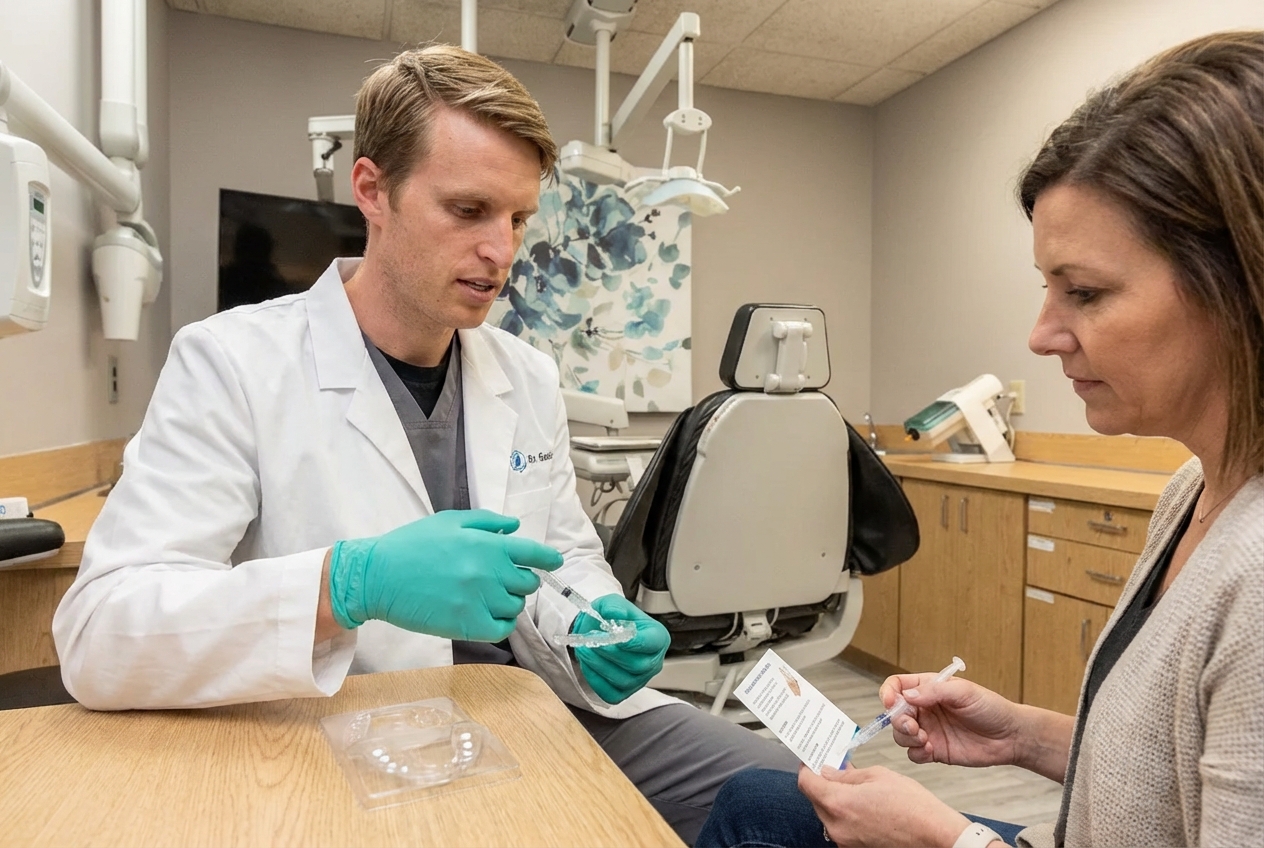
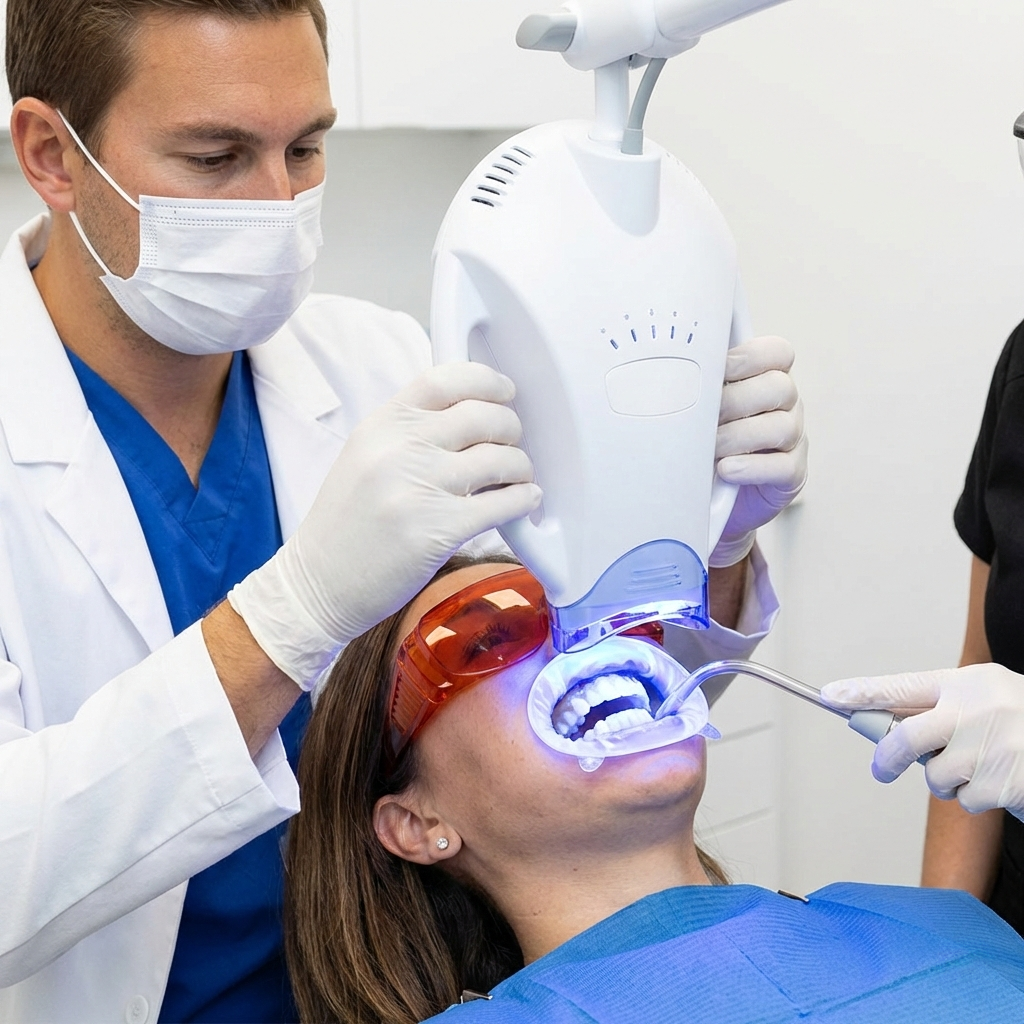


.jpeg)



